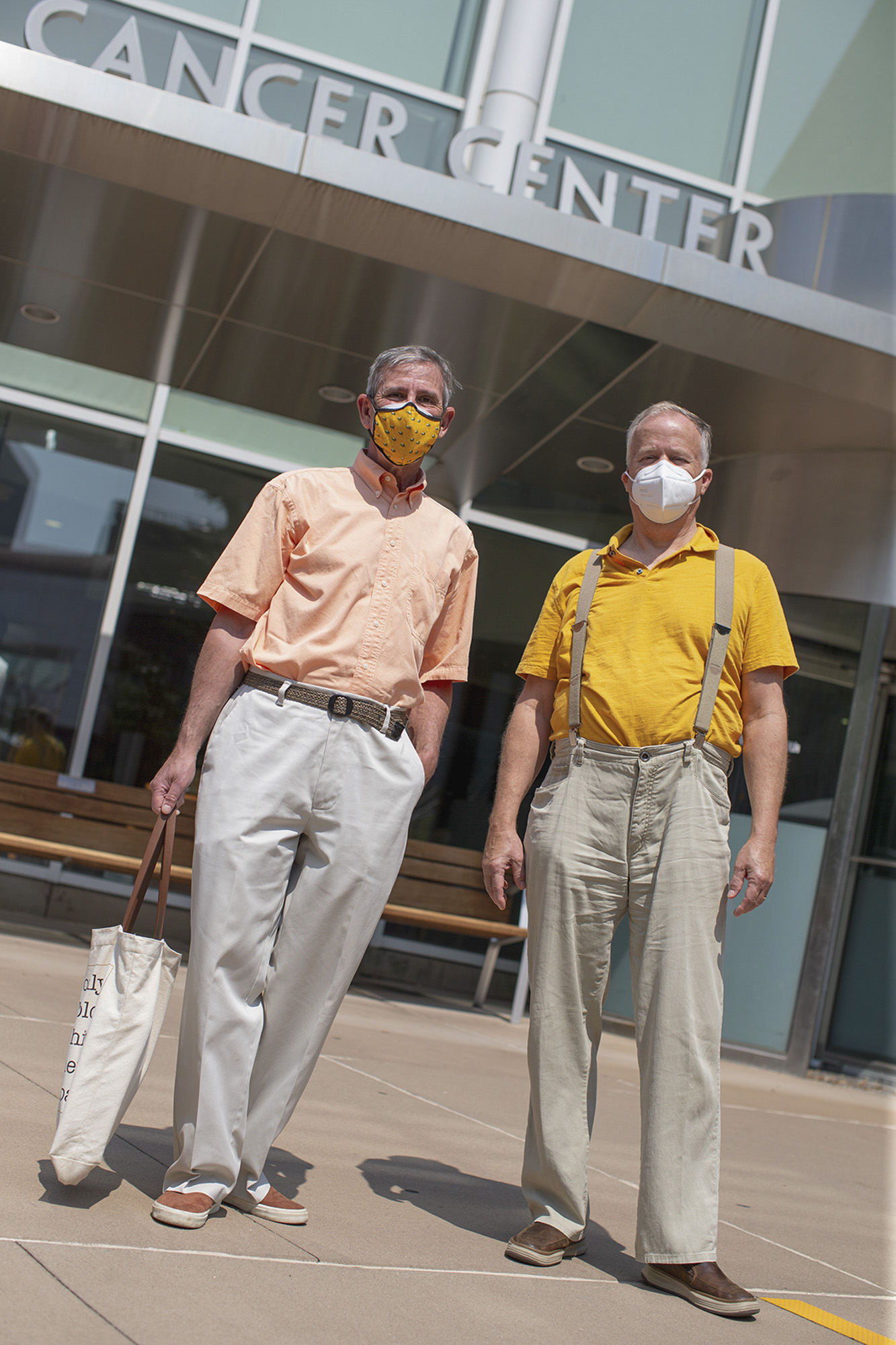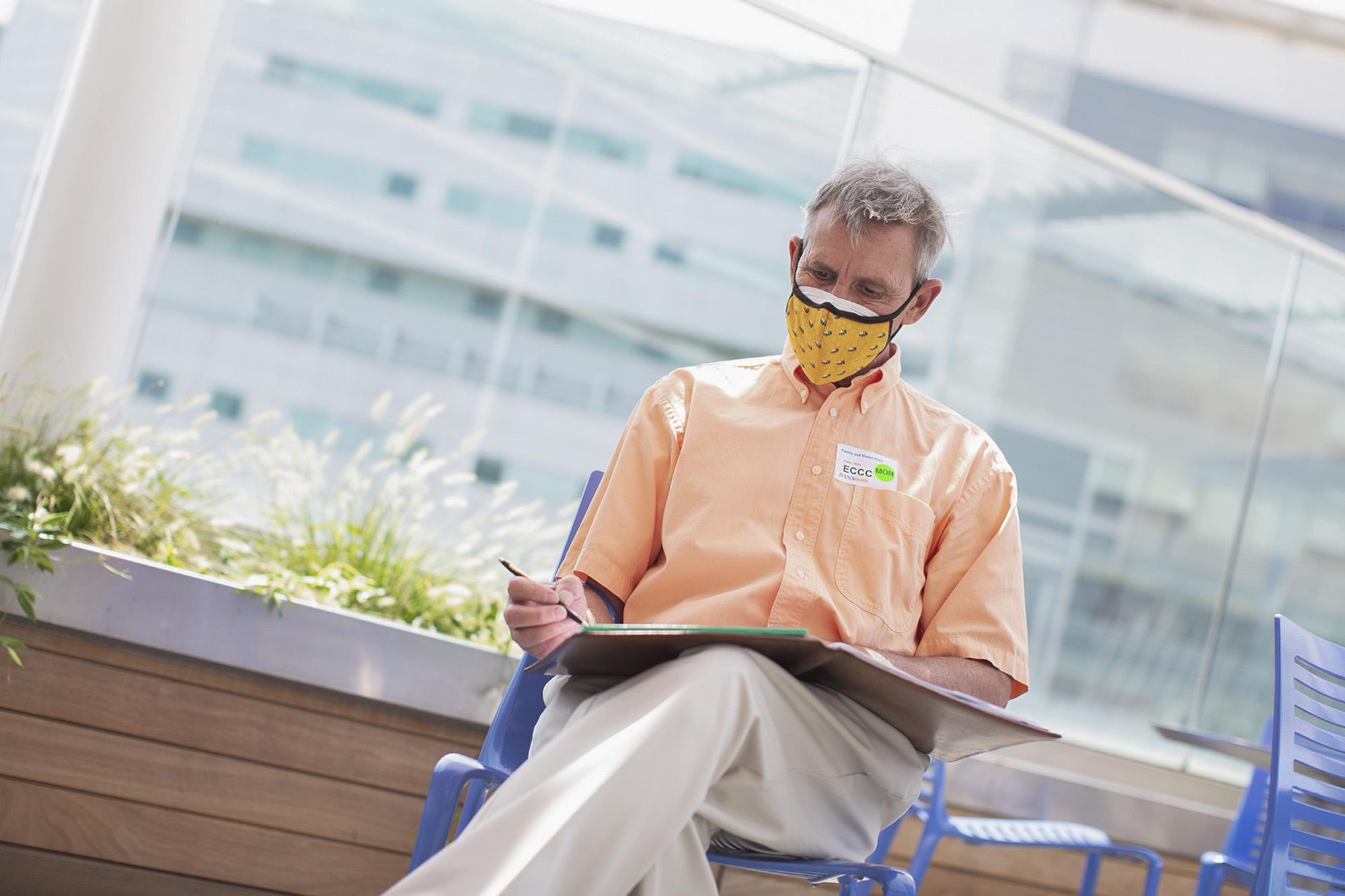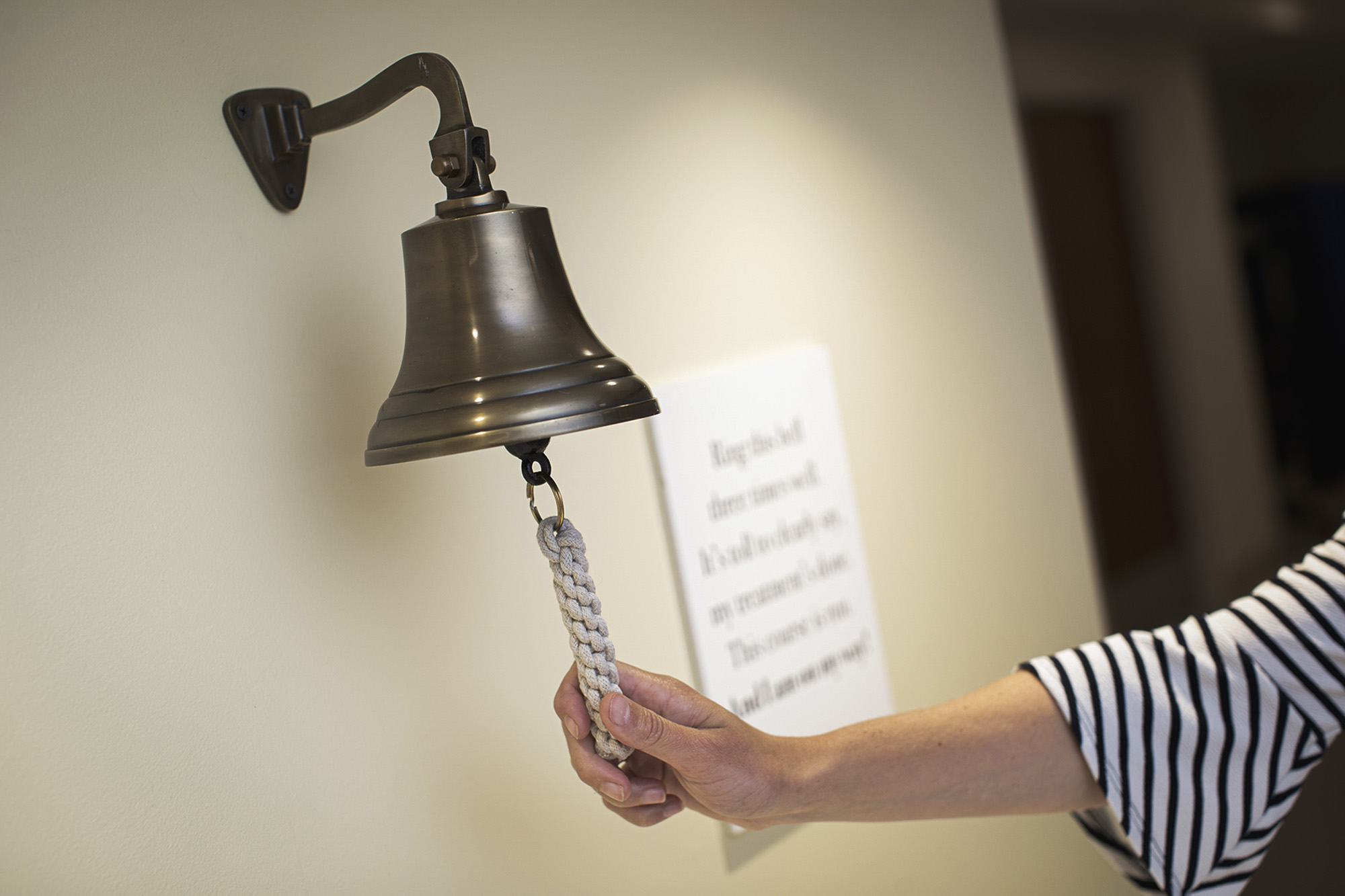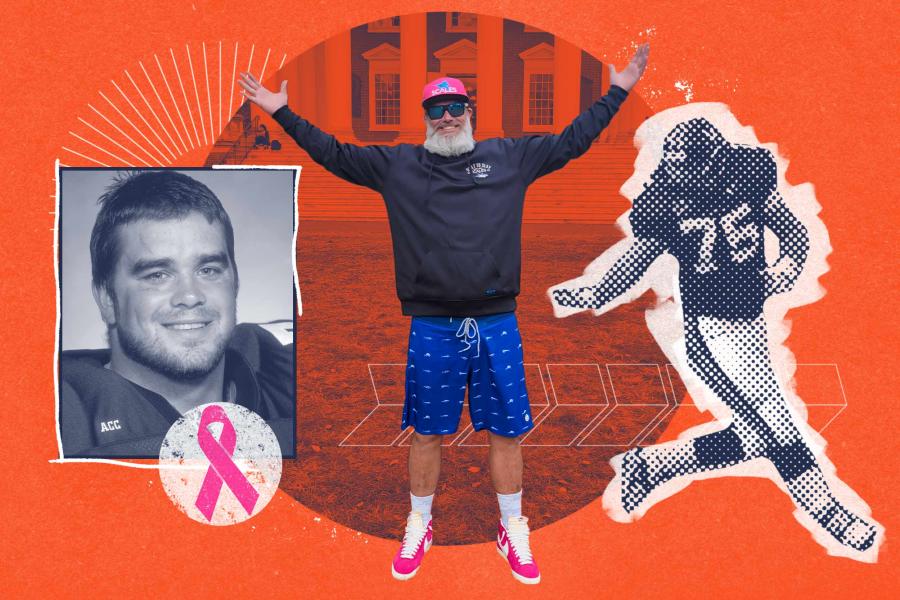Chances are you, or someone you love, will face an unexpected health crisis. For University of Virginia alumnus Bruce Rieder and his husband, Peter, it was a rare type of cancer that attacks the immune system – mantle cell lymphoma.
Rieder’s lymphoma treatment required wiping out his immune system. This happened just as the world was shutting down because of a deadly virus that no one’s immune system had ever encountered. He became a “virus refugee” but, happily, in one of his favorite places: Charlottesville.
Over several months, Rieder kept friends and family updated on his cancer journey with regular blog posts. Frank, funny and full of gratitude, Rieder provides powerful lessons for all of us on how to healthily face a health crisis.
Be Like Bruce: Tips for a Health Emergency
1. Be Open
Cancer is a common thread in Rieder’s family. His dad died of prostate cancer. His mother died of lung cancer. Other family members faced different kinds of cancer.
And yet, cancer was a forbidden topic. “One thing a cancer diagnosis does for some is to send them into a retreat of secrecy, shame, bitterness and isolation that is of no benefit to them or others,” Rieder shared. “I am determined to face this head-on, honestly and openly without reservation.”
2. Give Yourself Time to Grieve
Just before his 60th birthday, Rieder retired from a career in real estate development. He and Peter were a few years into enjoying their passion for traveling when Rieder experienced excruciating pain. At his local hospital in Arlington, an imaging scan revealed kidney stones. But it also showed a high number of lymph nodes – a telltale sign of lymphoma that tests later confirmed. It was September 2019.

Bruce Rieder, left, and his husband during a Charlottesville visit to see Rieder’s lymphoma care team at UVA.
Rieder took time to acknowledge the hard times ahead: “I can imagine the hazy outline of a path ahead. It will be a change. I will feel bad. I won’t be in control. I will be disappointed often by the things I can’t do. I may be surprised by the things I can do and the things I appreciate more fully. I can imagine a day when this cancer will not define every day of my life, even if today is not that day. I think I can create some space to grow from that.”
3. Find Ways to Be Grateful
Throughout lymphoma treatment, Rieder made sure to thank those who showered him and Peter with cards, homemade meals, and even an Easter basket. He felt “so very fortunate to have a good support system through Peter, our families, many friends and our church. I have what turns out to be pretty great insurance. I have access to some of the best doctors and facilities available in our country.”
4. Do Your Homework
Through the Leukemia & Lymphoma Society, Rieder found “extensive, specific, accurate, and current online information as well as knowledgeable people to speak with.” Rieder quickly grasped the gravity of the situation: “[Mantle cell lymphoma] is an incurable cancer with no known cause and no standard treatment protocol. The goal of treatment is to induce a remission for a couple, few, or several years before the cancer comes back.”
5. Get a Second Opinion
At his sister-in-law’s recommendation, Rieder headed to Memorial Sloan Kettering Cancer Center for recommendations on the best course of treatment. He considered getting lymphoma treatment in New York or closer to home, at Johns Hopkins Medicine in Baltimore. But ultimately, he decided that Charlottesville and UVA Health “checked all of the boxes” for him.
First, Rieder needed the best treatment. In the 1970s as a UVA student, Rieder vaguely knew there was a medical complex nearby. More than 40 years later, Rieder discovered UVA’s top-level expertise in blood cancers like lymphoma treatment.











